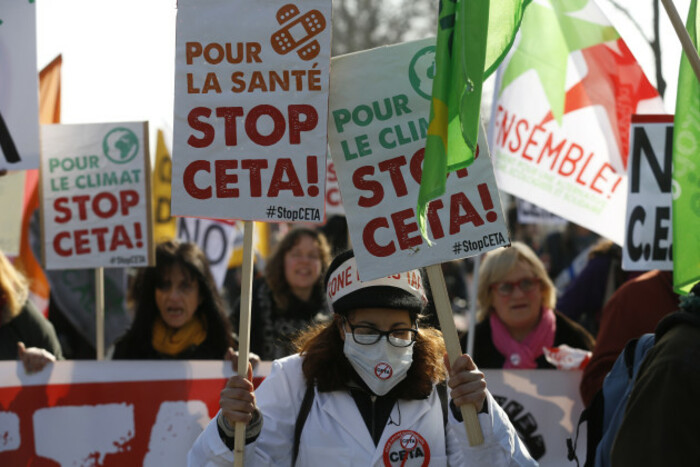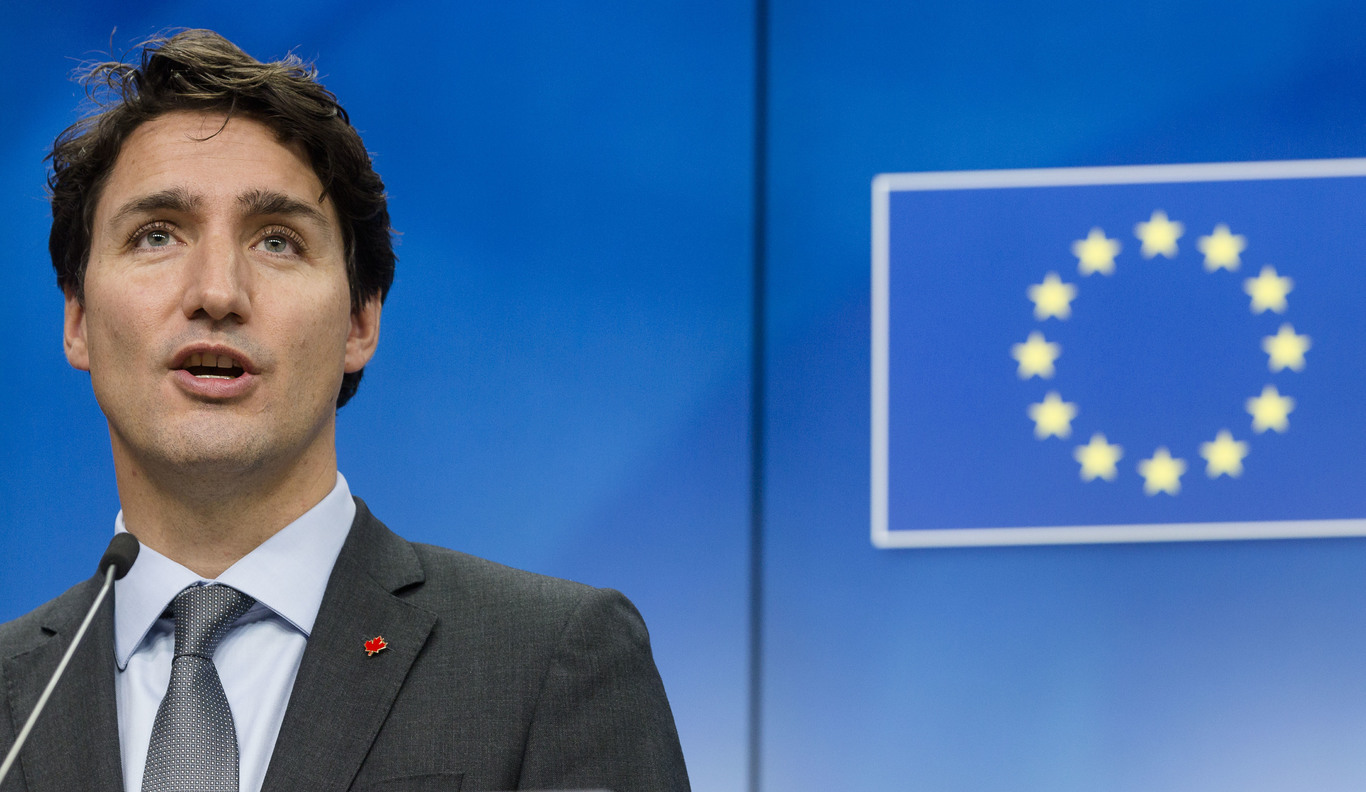The EU's contested free-trade deal with Canada has been cleared - but dairy's out
Some industries have been left untouched by CETA.
THE EUROPEAN PARLIAMENT has backed a contested EU-Canada free trade deal, facing down protests by activists and Donald Trump-inspired calls for protectionism.
MEPs hailed the deal as a rare victory for an imperilled global trade system that is under threat from US president Trump who opposes far-reaching trade deals.
The accord, known as CETA, is tipped as Europe’s most modern ever and a possible model for relations with Britain after its leaves the EU.
MEPs meeting in Strasbourg, France, solidly approved the pact with 408 votes in favour, 254 against and 33 abstentions.
“This is a watershed moment – EU trade policy will never be the same again,” said senior Scottish MEP David Martin, whose Socialists and Democrats group split on the issue.
Approval by the parliament allows the provisional implementation of the Comprehensive Economic and Trade Agreement as early as next month.
Protesters attempted to disrupt the vote, with about 700 people marching outside parliament to voice their opposition to the deal.
Anti-globalisation activists dressed in surgical masks dramatically blocked the entrance to the parliament building, before being dragged off by riot police.
 CETA protests
CETA protests
“Saying yes to CETA is a trampling of the people,” one banner saod.
Following the approval by parliament, Canadian prime minister Justin Trudeau will address MEPs in person on Thursday.
EU member states and Canada formally signed the deal in October after seven years of tough talks, overcoming last-minute resistance from a small Belgian region that blocked its national government from approving the accord.
“By adopting CETA, we chose openness and growth and high standards over protectionism and stagnation,” said Latvian MEP Artis Pabriks, a conservative from the EPP group who sponsored the law.
‘Blow to EU’
Opponents to CETA slam the deal as a “trojan horse” to big business and a danger to health, democracy and the rule of law.
“The disconnect between MEPs and public concerns over living standards, public health and the environment is another blow to the EU,” said Greenpeace’s EU trade policy adviser Shira Stanton.
Some of the more controversial aspects, including a much-derided investor court system, still require ratification by EU member states, which could take years.
CETA will remove 99% of non-farm customs duties between the two sides, a big win for exporters on both sides of the Atlantic.
And unlike classic trade deals, CETA harmonises regulations on matters such as health and the environment, a major concern for activists.
 EU trade commissioner Cecilia Malmstroem
EU trade commissioner Cecilia Malmstroem
Some industries are left untouched. The CETA deal will not remove tariff barriers for public services, audiovisual and transport services and a few agricultural products, such as dairy, which is heavily subsidised in Canada.
A major flashpoint for opponents is the proposal to set up special courts to settle disputes between investors and national authorities that is central to the deal.
Opponents believe this provision hands too much power to multinationals that will use powerful lawyers to undermine national regulation.
“Multinationals will be able to attack governments in a privatised court system,” said France’s far-right presidential candidate and MEP Marine Le Pen, who voted against CETA.
But the deal’s EU negotiator, commissioner Cecilia Malmstroem, told MEPs that “nothing in this agreement undermines a government’s right to regulate in the public interest”.
The vote comes at a particularly sensitive time for global trade matters, with Britain poised to leave the European Union and new US president Trump rejecting an Asia-Pacific trade deal.
Trump is also widely expected to drop a similar proposed deal with the EU known as the Transatlantic Trade and Investment Partnership or TTIP.






